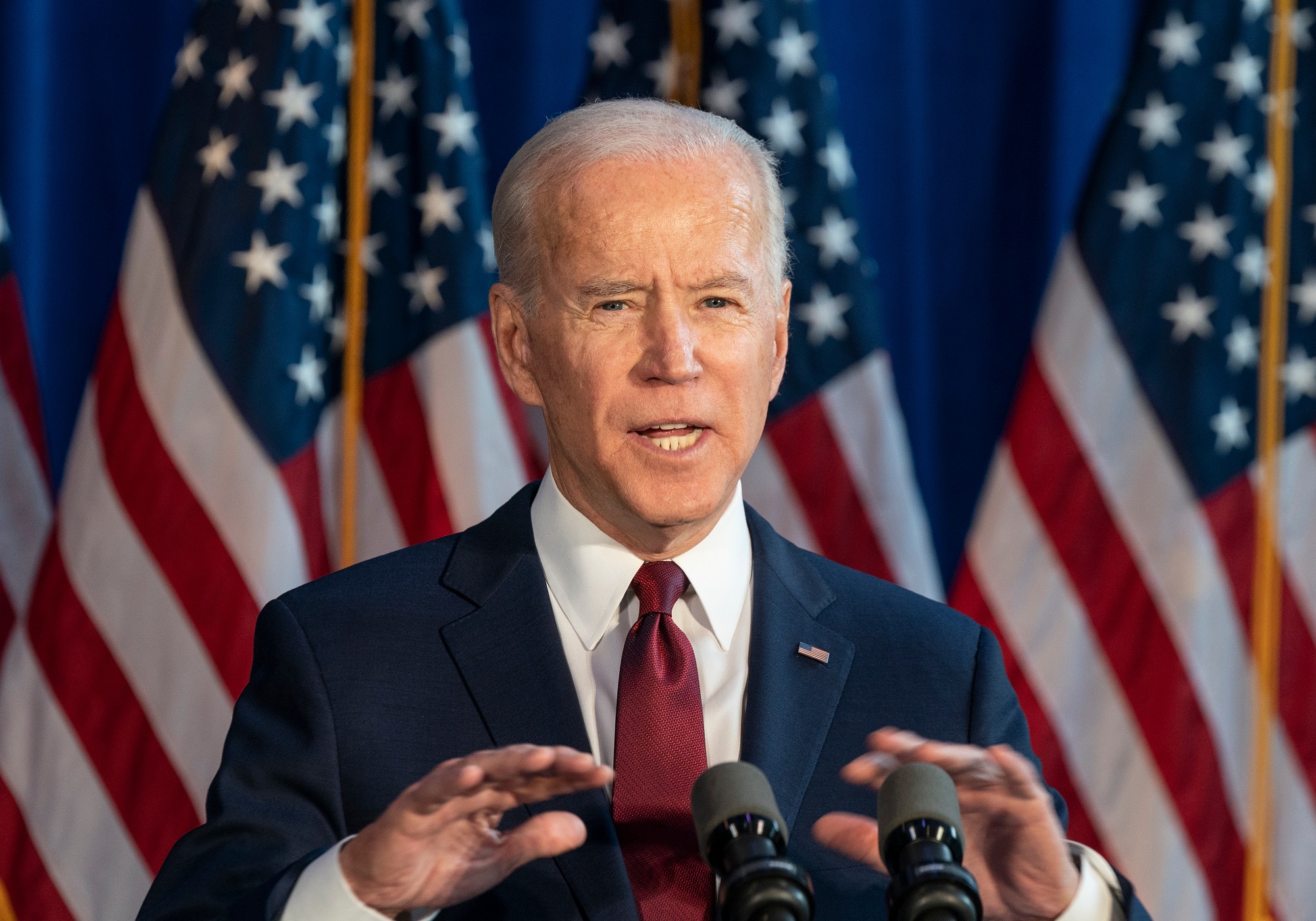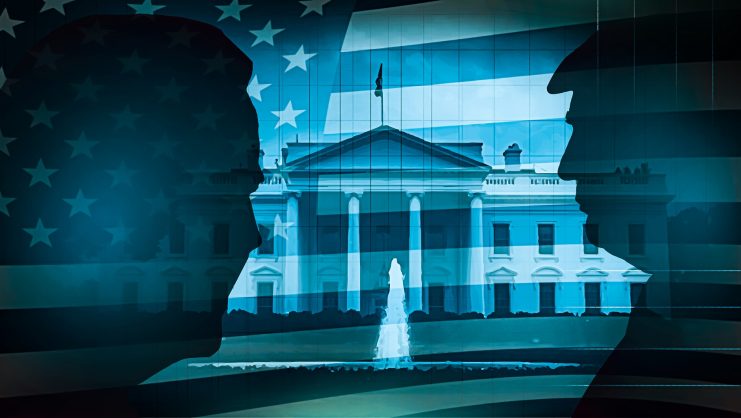Picking winners and losers from Joe Biden’s presidential victory is decidedly Trumpian. This false dichotomy of friends and enemies, you’re either with us or against us, has dominated US politics for the past four years. But politics is about power and power is not a zero-sum game. It is messy and diffuse, and the coming Biden administration understands this. We’ll need to get familiar again with a less head-splitting news cycle, one that instead of struggling to explain how mendacious the president is, actually wades into the weeds of policy.
This election has been, above all else, about basic decency and civility. More than voting for Biden, Americans voted against a president who lies so much that it’s impossible to keep track and is exhausting to recall, a man who is so lacking in empathy for other people that continued to hold in-person, unmasked campaign rallies, even after his own bout with the coronavirus. A group of economists at Stanford University made a statistical model that estimated that the 18 rallies the Trump campaign held between June and September caused 30,000 coronavirus infections and 700 deaths. This is the kind of person that the American people have rejected.
But not entirely. It’s important to keep in mind that millions of Americans did vote for four more years of Trump’s shock and awe. Biden cannot magically heal the country after so much damage to the collective psyche. Thousands of Trump’s camouflage dressed fans spent the days leading up to the election harassing voters at the polls and parading with their big trucks, flags, and guns, promising violence if Trump lost, democracy be damned. During a presidential debate, as President of the United States, Trump encouraged this behavior. He has consistently given voice to militia and white supremacist groups, encouraging them to act on their worst instincts.
Democracy just might be another winner here, but it’s been so degraded over the past four years that its revival requires powers beyond that of any mere mortal. Elections are our most direct expression of democracy, yet in order to win, Democrats needed to secure such an enormous majority to not only overcome the Republican advantage in the electoral college but to avoid close calls in swing states, because Republicans have been planning to send alternate electors to Washington on December 14 to challenge Biden electors if they can cast enough doubt on the election in key states. Then there’s the electoral college itself, a continual blight on American democracy. This undemocratic system can only be changed via a constitutional amendment, something that Republicans will never stand for because they think it gives them a permanent advantage.
And if the U.S. can’t live its own democratic values at home, how can it go back to being a beacon for democracy for the rest of the world? We watched America’s standing abroad fall abruptly during the George W. Bush years, shoot up with Barack Obama’s presidency, and then drop back down again these past four years. How forgiving will the world continue be of a country that vacillates between one extreme and another?
Trump once quipped that “We have allies. We have enemies. Sometimes the allies are enemies, but we just don’t know it.” Biden knows who America’s allies are and will do his best to restore relations with them, starting with Europe. One of his best assets is that he has well-established relationships with leaders around the world and surely this will help him gain their trust.
Personal relationships amongst global leaders aside, it’s hard to imagine how the U.S. ever recovers its standing among the people of the world. Only time and polling will show. Therefore, while relationships with allies and America’s image in the world might seem like winners here, again, it’s not all that clear. America’s beleaguered diplomatic corps — made up of the people who represent the U.S. all over the world – stands to gain from a Biden presidency, which will likely restore the State Department’s budget and its dignity.
Multilateralism could also be a big winner. And while it’s true that Trump did his very best to degrade it, it was already fraying before he came along. Again, Biden being known among US allies will certainly be helpful, but the multilateral international order is in need of radical reform, the likes of which requires leadership. At present, most leaders are barely able to keep up with managing COVID-19 in their own countries, let alone lead the charge towards a more cooperative response. It’s difficult to imagine Biden making much headway in bringing the world together at this point as we face second and third waves and a long bleak winter ahead. That said, a Biden presidency should be a force for a fair distribution of a vaccine throughout the world. When scientists finally get there, it will be an opportunity for the U.S. to show the world that its president might still have a claim to the title “leader of the free world.”
While a Biden victory is a rejection of Trump’s handling of the pandemic, it was framed as a national rather than transnational emergency by the media, Trump, and even Biden. Except, that is, in terms of China. Trump and Xi Jinping both engaged in a blame game, especially about the origins of the disease and in an interview with Reuters Trump said that “China will do anything they can to have me lose this race.” Even if Xi was rooting for Biden, this doesn’t necessarily make him or China a winner in this election.
Biden has a long history of embracing engagement with China and treading carefully on the issue of Taiwan. Yet he adjusted his tone during the campaign. In the Democratic debate on February 25, Biden called Xi a “thug” who “doesn’t have a democratic – with a small D – bone in his body.” In mid-April, Biden’s campaign ran an ad that called out Trump for, at first, praising China’s response to COVID-19. While Biden probably won’t be launching any trade wars any time soon, his campaign rhetoric and the fact that 66% of Americans view China negatively, makes it hard to envision how a Biden White House might significantly improve relations with China, especially when the negative feelings are mutual.
A Biden presidency will bring about both opportunities and challenges in Latin America. Trump, of course, reversed the opening of relations with Cuba led by Obama. More Americans favor re-establishing diplomatic relations with Cuba and ending the trade embargo than not, which allowed Obama to open up relations as part of his final acts of foreign policy and is an issue that unites Democrats — Biden promises a return to this Obama policy.
Venezuela is a little more complicated for Democrats. Under some guidance from Florida’s Republican Senator Marco Rubio, Trump became a vocal supporter of Juan Guaidó’s quest for leadership in Venezuela. Senator Bernie Sanders initially balked at supporting Guaidó, the far left of the Democrat party is suspicious of him, but Biden has stated his support for his “efforts to restore democracy.”
Regarding the Republican party, it is essential to note that while the election has not gone their way, they have still realized their biggest, most important goal: a conservative Supreme Court and, along with it, massive amounts of conservative federal court judges. So, while they might currently be short on federal political power, conservative thinking will dominate the judiciary system for decades to come.
Furthermore, a second Trump term would have obliterated whatever tiny fragment remained of the old Republican Party. His loss allows for new leadership to arise and, perhaps this is overly optimistic, bring the party back to its conservative roots. Aside from Ronald Reagan, Republicans have shown a recent tendency to move on quite easily from their past leaders, especially those who lose. Think about the one-term George H.W. Bush and then consider his son George W. Bush who actually won two terms but left office with historically low approval ratings. In subsequent elections, the party remained uninterested in including either of them in conventions or other gatherings.
A Politico headline posited that Congresswoman Liz Cheney, daughter of former Vice President Dick Cheney, could become the next face of the party. Then there’s former UN Ambassador Nicky Haley who is widely expected to run in 2024. New York Times columnist David Brooks believes that Senators Marco Rubio, Josh Hawley, Tom Cotton, and Ben Sasse are the future of the party. Of course, Trump’s Vice President Mike Pence will most certainly run for president in 2024 and then there are the Trump children, especially Donald Jr. and Ivanka Trump who might vie to take over where their father left off.
When all is said and done, Trump himself will not go quietly into the night and will in all likelihood be back on TV, perhaps even flirt with a run in 2024. Biden’s victory won’t put a sudden end to the Trump chaos, but at least come January it can move out of the White House and head back to the gilded place from which it came.
A version of this article was published in Spanish with esglobal on November 7, 2020.
© IE Insights.





